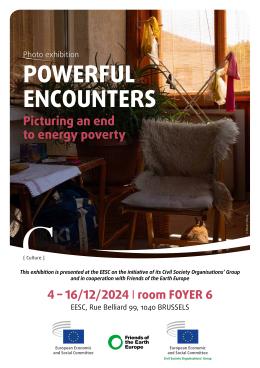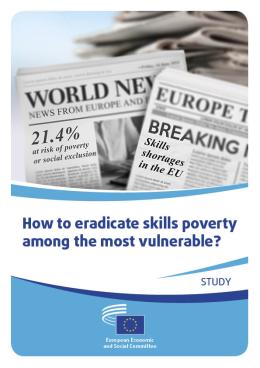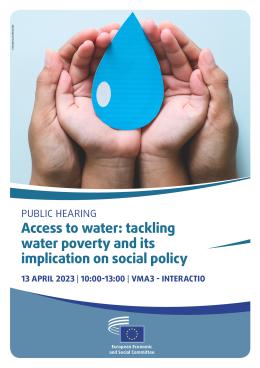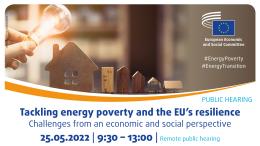European Economic
and Social Committee
Main navigation
-
Komiteest
ABOUT
The European Economic and Social Committee (EESC) is the voice of organised civil society in Europe.
Find out more about its role and structure at http://www.eesc.europa.eu/en/about
- Poliitiline struktuur
- Haldusstruktuur
- KOOSTÖÖ TEISTE INSTITUTSIOONIDEGA
- Rules
-
Komitee töö
OUR WORK
The EESC issues between 160 and 190 opinions and information reports a year.
It also organises several annual initiatives and events with a focus on civil society and citizens’ participation such as the Civil Society Prize, the Civil Society Days, the Your Europe, Your Say youth plenary and the ECI Day.
Find the latest EESC opinions and publications at http://www.eesc.europa.eu/en/our-work/opinions-information-reports/opinions and http://www.eesc.europa.eu/en/our-work/publications-other-work/publications respectively.
- Arvamused ja teabearuanded
- Dokumendid
- Väljaanded ja muu töö
-
Kodanikuühiskond ja kodanike osalus
- Civil Society Week
- European elections 2024
- Kodanikuühiskonna auhind
- The Conference on the Future of Europe
- Euroopa demokraatiapass
- Sinu Euroopa, Sinu arvamus!
- Euroopa kodanikualgatus
- The path to our industrial future
- Youth Climate and Sustainability Round Tables
- EU Organic Awards
- Civil Society Against COVID 19
- EESC stands with Ukraine
- Partnerships
- Relations with ESCs
-
Poliitika
POLICIES
The EESC is active in a wide range of areas, from social affairs to economy, energy and sustainability.
Learn more about our policy areas and policy highlights at http://www.eesc.europa.eu/en/policies
-
Poliitikavaldkonnad
- Põllumajandus, maaelu areng ja kalandus
- Kliimameetmed
- Ühtekuuluvus-, regionaal- ja linnapoliitika
- Tarbijaküsimused
- Digitaalsed muutused ja infoühiskond
- Majandus- ja rahaliit
- Haridus ja koolitus
- Tööhõive
- Energeetika
- Ettevõtlus
- Keskkond
- Välissuhted
- Finantsteenused ja kapitaliturud
- Põhi- ja kodanikuõigused
- Housing
- Tööstus ja tööstuse muutused
- Institutsioonilised küsimused ja ELi eelarve
- Rände- ja varjupaigaküsimused
- Teadus ja innovatsioon
- Üldhuviteenused
- Ühtne turg
- Sotsiaalküsimused
- Kestlik areng
- Maksustamine
- Transport
-
Poliitikavaldkonnad
-
Ajakava
AGENDA
The EESC holds nine plenary sessions per year. It also organises many conferences, public hearings and high-level debates related to its work.
Find out more about our upcoming events at http://www.eesc.europa.eu/en/agenda/our-events/upcoming-events
- Komitee üritused
-
Uudised ja meedia
NEWS & MEDIA
Here you can find news and information about the EESC'swork, including its social media accounts, the EESC Info newsletter, photo galleries and videos.
Read the latest EESC news http://www.eesc.europa.eu/en/news-media/news and press releases http://www.eesc.europa.eu/en/news-media/press-releases
- President
-
Liikmed ja rühmad
MEMBERS & GROUPS
The EESC brings together representatives from all areas of organised civil society, who give their independent advice on EU policies and legislation. The EESC's326 Members are organised into three groups: Employers, Workers and Various Interests.
Find out more about our Members and groups at http://www.eesc.europa.eu/en/members-groups
- Liikmed
- Rühmad
-
Sektsioonid ja muud tööorganid
SECTIONS & OTHER BODIES
The EESC has six sections, specialising in concrete topics of relevance to the citizens of the European Union, ranging from social to economic affairs, energy, environment, external relations or the internal market.
Find out more at http://www.eesc.europa.eu/en/sections-other-bodies
-
Sektsioonid / komisjon
- Majandus- ja rahaliidu ning majandusliku ja sotsiaalse ühtekuuluvuse sektsioon (ECO)
- Ühtse turu, tootmise ja tarbimise sektsioon (INT)
- Transpordi, energeetika, infrastruktuuri ja infoühiskonna sektsioon (TEN)
- Tööhõive, sotsiaalküsimuste ja kodakondsuse sektsioon (SOC)
- Põllumajanduse, maaelu arengu ja keskkonna sektsioon (NAT)
- Välissuhete sektsioon (REX)
- Tööstuse muutuste nõuandekomisjon (CCMI)
- Vaatlusrühmad
- Muud
-
Sektsioonid / komisjon
- Ukraine








